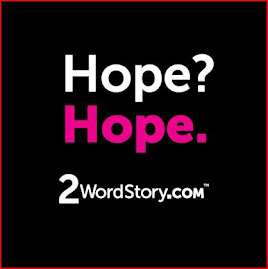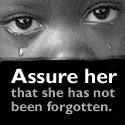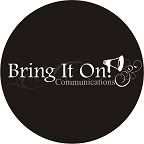One aspect of a person’s life that has a deep impact is the lack of a father in his or her life. In ‘Fatherless Generation: Redeeming the Story ,' John Sowers shares his personal story, and explains what we can do to turn this tragedy around.
,' John Sowers shares his personal story, and explains what we can do to turn this tragedy around.
What happens when our givers of life give us a lifetime of tears? The story of fatherlessness is being written into the heart of our generation. It is heard in our songs, seen in our movies, read in our blogs. It is a story of shame, loneliness, and rejection. A story of missed potential and wasted lives.
But fatherlessness is more than a personal tragedy. It is a growing epidemic. Fatherlessness is the driving force behind gangs, teenage pregnancy, drug abuse and suicide. And all too often, the fatherless are either marginalized or ignored.
Weaving in his experience of fatherlessness, John Sowers shows how awareness, compassion, and intentional intergenerational mentoring can offer a generation hope – hope that will write new stories for generations to come.
Here is the biography of this author:
Dr. John Sowers is president of The Mentoring Project, a movement that exists to inspire and equip the faith community to provide mentors for the fatherless. He has also been part of the White House Task Force conversation on Fatherhood and Healthy Families. John received his Masters of Divinity degree from Trinity Evangelical Divinity School and graduated from Gordon-Conwell Theological Seminary where he wrote his doctoral thesis on the crisis of fatherlessness. John and his wife, Kari, reside in Portland, Oregon.
Here is the book trailer for this important book:
And here is Don Miller, founder of The Mentoring Project, with a video review:
Dr. Sowers explained what happened to him after his father abandoned their family:
Fatherlessness creates an appetite in the soul that demands fulfillment. Over time, the unmet needs created by Dad’s absence turns into something that author Robert McGee calls “father hunger.” And in America alone, millions are starving to death. McGee states, “People who grow up starved for a father’s love become victims of an anonymous mugger or a faceless cancer.”
To live with father hunger is to live with sadness of what will never be. Perhaps the worst thing about this rejection is living with the knowledge that someone has chosen to turn his back on you. Someone has chosen to leave you. Someone has determined your value and decided you are not worth having around – or that he would be better off someplace else, without you. (p. 19)
This need for a father is inside of all of us:
Each of us has this visceral longing, a primal urge to be accepted by our father and to make him proud. The urge is something like hunger or the need for sleep – it stays with us our entire lives. When Dad is not around, this urge becomes a haunting. The ghost usually takes on the form of a question. We may bring our question to other men, or every man we meet. We may bring our question to the world of women. We may bring our question to the mirror and remain haunted by its booming silence. We wonder, “Do you see me? Will you validate me?” All the while, the question grows louder in our hearts. (pp. 26-27)
Shame and the feeling of inadequacy are dangerous effects of fatherlessness:
Conflicted, we bring this shame-induced inadequacy into everything we do – the relationships we have, the way we think, live, and believe. We bring our inadequacy to the workplace, with something to prove, and we either quit or become workaholics. We bring our inadequacy to our peers and become people pleasers or rebels. We bring our inadequacy to a relationship, and when it doesn’t answer the question, we blame, move on, or wallow in despair. We face our inadequacy and become victims or performers. We escape the inadequacy and become irresponsible or addicted. We project our inadequacy onto God and feel that God is ashamed of is and that we must perform flawlessly to earn and keep his approval. (p. 29)
Fatherless girls are not exempt from the hurt:
Fatherless girls struggle with shame as well. Girls mourn the missed opportunities to stand on the living room table and spin their twirling dress for Dad. They dream of being beautiful, adored, noticed, of shining for him and captivating his attention. They wonder if they are even worth noticing at all. (p. 31)
Dr. Sowers shares reader comments from his blog. Beth made this comment:
We all handled it differently. My older brother chased Dad’s car. My mother cried and basically stopped functioning for months… And I just kind of held it in. Seven years later, I still, to this day, hold it in…I have issues with my self-esteem. And find it hard to trust people. I hope that one day, the wounds I have inside will heal. (p. 31)
There is huge fallout from fatherlessness. Dr. Sowers shares some sobering statistics (pp. 36-37):
63 percent of youth suicides
71 percent of teenage pregnancies
90 percent of all homeless and runaway children
70 percent of juveniles in state-operated institutions
85 percent of all youth who exhibit behavioral disorders
80 percent of rapists motivated with displaced anger
71 percent of all high school dropouts
75 percent of all adolescents in chemical abuse centers
85 percent of all youths sitting in prison
Dr. Sowers has made the acquaintance of pop singer Kelly Clarkson. He mentioned a song of hers, ‘Because of You,’ that tells her own story of fatherlessness in her own life. I was not familiar with this song before. It is powerful both in word and the images in the video:
Another talented musician who dealt with fatherlessness is Matt Redmond, worship leader and composers of such Christian standards as “Blessed Be Your Name” and “You Never Let Go.” Matt shared with Dr. Sowers that he had many mentors in his life that helped him work through his shame and feelings of inadequacy:
There were definitely a few years of pain and struggle there in my childhood and early adult teenage years – but to be truthful, I never felt very “fatherless.” I think that has a lot to do with God being true to his word. Scripture tells us that he is a Father to the fatherless, and I knew a massive measure of that as I grew up. In fact, so many of the painful things in my childhood, by his grace, propelled me toward God and not away from him. I would go so far as to say that these times of turmoil were actually the things that solidified my walk with God and made me want to walk and talk with him. Throughout the whole season, however, I had a very real sense of God being my Father – and a very strong and compassionate one at that. (p. 82)
God is involved in this process of mentoring:
God fathers us through intimacy of his Spirit, but also by bringing people – spiritual mothers and fathers – into our lives. These mentors teach us what it is like to be loved, what it means to be a man or woman. A mentor’s presence in the life of a young person declares to him or her, “You are not rejected. You are important and valuable – you matter.”
God is calling his body, the church, to step up and be his people, to represent his fathering love to a fatherless generation of children and youth. And he is giving us opportunities to answer the call. This is the heart of mentoring. Mentoring is about answering God’s call, joining with him as he rewrites the broken story of a generation. Mentoring mirrors God’s heart. Long before we ever consider him, God is taking the initiative and choosing to invest our time and energy into the life of a child or young person. (p. 88)
We must have a good relationship with God in order to effectively mentor:
A godly mentor needs to have a vertical relationship with God. A mentor doesn’t need to have it all together, but he should be growing in his faith as he follows the one both he and the mentee are trying to emulate.
This is the foundational element of mentoring. We cannot show others something we have not known or understood. Our vertical relationship with God is the foundation of our relationship with others. God is our source and motivation behind our love, our example and model that we show to our mentee. We must be willing to be mentored by God if we wish to model our life after his and imitate his example. (p. 107)
This subject – fatherlessness – is near to my heart. My parents divorced before I was born, and I never met my father. I have never even seen a photo of him. He passed away when I was about twelve years old. I never had a father figure. When I married Fred, I hoped that hole would be filled by his father. Sadly, that relationship did not flourish as I hoped it would. That is a heartache as well. So I understand what it is like to miss that important part of life. As a result, I also have a hard time relating to God as Father. I have an easier time relating to Jesus as the Son of God.
I had never really looked at the subject of fatherlessness, and how it affects people, to the extent that Dr. Sowers does in this book. I had gained much insight on society and on myself, and
I appreciate the research he has done and the wisdom he has imparted. I recommend this book to anyone who deals with this issue – and that is all of us, when you consider the cost that has been assessed on society in general. I pray that men who father children will accept their responsibility and look to God to help them fulfill that responsibility for the good of their child and of society at large.
You can order this book here .
.
This book was published by Zondervan Publishers and provided by them for review purposes.





























.jpg)







No comments:
Post a Comment